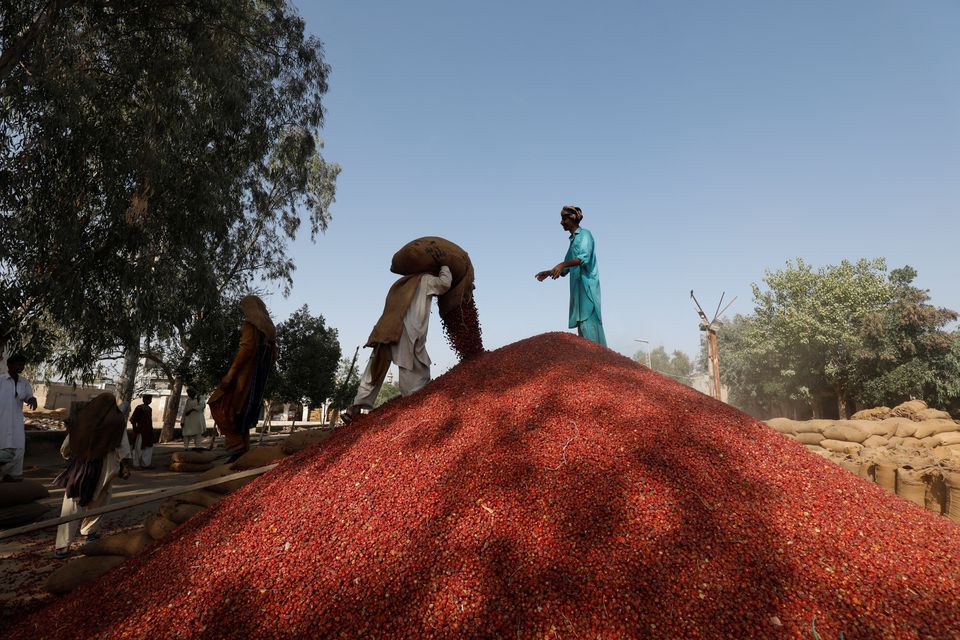
The government has decided to ratify the forced labour convention in a bid to continue to work with the global trade partners that prioritise human rights, especially the European Union (EU).
In a recent meeting, the cabinet approved the ratification of the Protocol to the Forced Labour Convention, 1930. Sources said the cabinet was informed that delay in ratification of the protocol could be perceived as a lack of commitment to the human rights, potentially damaging Pakistan's reputation in the global community.
Additionally, Pakistan may face restrictions or sanctions, particularly from trade partners that prioritise human rights, such as the EU, which has introduced stricter trade conditions under the due diligence directive. The cabinet was told that the Ministry of Overseas Pakistanis and Human Resource Development (OP&HRD) was responsible for engaging with the international organisations pertaining to labour and social security.
Pakistan has been a member of the International Labour Organisation (ILO) since 1947 and has ratified 36 out of 191 ILO Conventions to date, of which 30 are currently in force.
The 2014 Protocol to the Forced Labour Convention, 1930 (P-029) is one of the 11 ILO instruments (conventions/protocols) that are designated as fundamental. Following the 1998 Declaration on Fundamental Principles and Rights at Work, all ILO members have an obligation to respect, promote and realise all fundamental principles, including the abolition of forced labour.
The cabinet was informed that a detailed gap assessment between the provisions of the protocol and the relevant national legislation on forced labour was conducted in 2021 with the technical assistance of the ILO country office. Its findings were disseminated through the tripartite workshops (involving the relevant government agencies, employers and workers' organisations) held in August 2021, and again in September and November 2023. The ILO's Bridge project (From Protocol to Practice: A Bridge to Global Action on Forced Labour), running from 2023 to 2025, is working with Pakistan's federal and provincial agencies to design targeted interventions aimed at eliminating the forced labour where it was the most prevalent.
Under the follow-up procedure for the 1998 ILO Declaration on Fundamental Principles and Rights at Work, Pakistan has to report every year on its efforts to realise the provisions of the protocol. Once Pakistan has ratified the protocol, these annual reports will no longer be requested. The Ministry of OP&HRD has developed the criteria for prioritising the ratification of International Labour Standards (conventions/protocols).
Based on the criteria, the federal tripartite consultation committee, at its 18th meeting held on May 9, 2024, endorsed the ratification of three conventions/protocols for 2024, including the P-029. The Ministry of Commerce, via its letter dated October 24, 2022, had informed that P-029 would be included in the list of international conventions forming the basis of requirements under the United Kingdom's Developing Countries Trading Scheme, replacing the UK's Generalised Scheme of Preferences (GSP).
Furthermore, the ratification of P-029 is included as a federal action point in the Ministry of Human Rights' first Five-Year National Action Plan on Business and Human Rights (2021-26), approved by the federal cabinet. Pakistan's ranking has improved in the US Trafficking in Persons (TIP) report, reflecting improvements in addressing trafficking in persons, modern slavery and forced labour. The ratification of P-029 will help the country further improve its ranking.
The ILO project, which supports reporting on TIP, forced labour and child labour, has contributed to the institutionalisation of capacities for reporting on these issues and continues to strengthen capacities at both national and provincial levels. Upon ratification of the protocol, Pakistan formally commits to comply with its provisions and accepts the ILO's supervisory system and the Standards Review Mechanism Tripartite Working Group recommendations.
The proposed ratification of P-029 will affirm Pakistan's commitment to eradicating forced labour, aligning with human rights principles and the SDG 8 on decent work. This will enhance the country's international standing, fostering partnerships and resource mobilisation, thereby strengthening domestic interventions and attracting support from multilateral organisations.







1732084432-0/Untitled-design-(63)1732084432-0-270x192.webp)


1733205462-0/Untitled-design-(77)1733205462-0-270x192.webp)







COMMENTS
Comments are moderated and generally will be posted if they are on-topic and not abusive.
For more information, please see our Comments FAQ